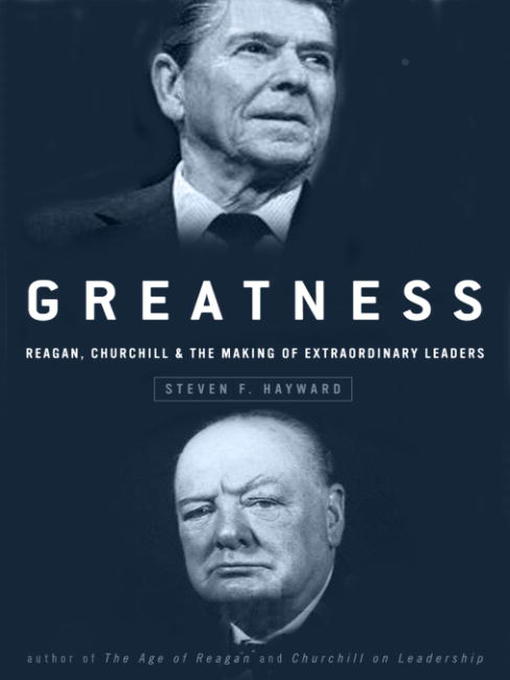
Greatness
Reagan, Churchill, and the Making of Extraordinary Leaders
کتاب های مرتبط
- اطلاعات
- نقد و بررسی
- دیدگاه کاربران
نقد و بررسی

July 25, 2005
Ronald Reagan was just a B-list actor when Winston Churchill assumed control over Europe's fate. Even as president, Reagan remained at heart a California rancher with Midwestern roots, while Churchill was a British aristocrat groomed for the political stage from a young age. Despite these obvious differences, American Enterprise Institute fellow Hayward (The Age of Reagan; Churchill on Leadership
) argues that the two icons possessed the same essential ingredients for the making of political greatness: boundless vision and imagination; a capacity for strength and optimism, even humor, in the face of crisis; an iron will; and a denunciation of evil, embodied most famously in Churchill's Iron Curtain speech and Reagan's "evil empire" and "tear down this wall" counterparts. While the two were essentially conservative figures, Hayward's analysis is not innately political but is, rather, marked by balanced insightfulness. Finally, the author argues, with an optimism worthy of his subjects, that political greatness in the 21st century—an ostensible oxymoron at times—is not only necessary but possible. This is a useful primer for students of political science, not to mention politicians, in the essential qualities of truly great leaders.

October 1, 2005
Hayward compares and contrasts two stalwarts of conservatives' twentieth-century pantheon. Sympathetic to Reaganism, Hayward finds similarities between Winston Churchill and Ronald Reagan and strives to generalize them as generic attributes of political greatness. Perhaps that will expand his audience; in any case, admirers of his two subjects will be reinforced in their views by Hayward's observations. These typically reflect off the criticisms made of Churchill and Reagan by contemporaries, such as their fear of wielding power. This attitude was not the preserve of socialist or liberal opponents but existed in the men's own parties. Consequently, both men experienced a "wilderness" period before events moved toward their way of thinking, a validation in their own minds, in Hayward's argument, that providence had marked them for a special historical mission. Imagination was also behind their conservatism, which was instinctual rather than intellectual, Reagan characteristically explaining his policies anecdotally. Concluding with their repugnance for the Soviet system--which each believed, against the grain of realpolitik, was destined for collapse--Hayward's essay previews his forthcoming history of the Reagan presidency.(Reprinted with permission of Booklist, copyright 2005, American Library Association.)

























دیدگاه کاربران